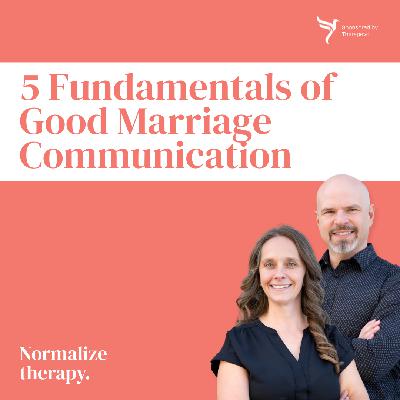What Do I Tell My Wife About My Affair? A Guide to Disclosure and Healing
Description
Disclosing an affair is one of the most critical and challenging conversations a husband can have with his wife. When mishandled, this revelation will certainly extend the healing process and possibly could mean the end of the marriage. However, for those who genuinely want to save their relationship and show as much care to their betrayed partner as possible, there are ways to approach this conversation with clarity, care, and respect.
Understanding what to tell your wife about your affair—and how to say it—can make all the difference in whether your marriage survives this painful breach of trust. Infidelity affects about 20-25% of marriages, highlighting how common yet devastating this issue can be.
<figure class="wp-block-embed alignfull is-type-video is-provider-youtube wp-block-embed-youtube wp-embed-aspect-16-9 wp-has-aspect-ratio">
https://youtu.be/nPlogRdjb18?si=YoPnDPSijA9Bcvac
</figure>
The fear of causing pain and facing the consequences of infidelity is very real and understandable. Yet, how the conversation starts is crucial; it should not be about damage control (i.e., mere self-preservation) or minimization. Instead, it must be rooted in honesty, integrity, and a commitment to building a foundation for possible healing. If your goal is to save your marriage, knowing how to communicate the truth about your affair is the first vital step.
TLDR; being honest and transparent from the beginning is essential for rebuilding trust and demonstrating genuine remorse.
Healing From An Affair Begins With Thoughtful Disclosure
The healing process after an affair is never simple, but it is possible with the right approach and mindset. The reality is that both partners will experience a wide range of emotions, from anger and grief to confusion and hope. Recently found research shows that couples who approach this journey with empathy and a willingness to work through difficult issues are more likely to rebuild trust and potentially create a stronger relationship than before. Rebuilding trust takes time (more than you think!) after infidelity, requiring patience and consistent effort from both partners.
It’s important to keep your heart open and acknowledge the pain that has been caused, both to yourself and your spouse. Seeking out a counselor who understand betrayal trauma can provide the guidance and structure needed to address the complex issues that arise after infidelity. In some cases, the support of a parent or other close family member can also offer comfort and perspective. Many people struggle with the decision of whether to involve friends and family in the recovery process after infidelity, as it can be both a source of support and a potential complication.
Remember: there is no single “right” way to heal. Every couple’s circumstances are unique, and what works for one may not work for another. The key is to remain open, communicate honestly, and be willing to put in the work required to move forward. Healing takes time, but with empathy, the right support, and a commitment to facing reality together, it is possible to start rebuilding your relationship from a new, solid foundation.
Preparing for the Infidelity Disclosure
Preparing to tell your wife about your affair requires careful thought and planning. The right environment can make a significant difference—choose a time and place where you both feel comfortable and free from distractions, so you are able to be fully present with the fallout. Before the conversation, take time to write down your thoughts and disclosures. This can help you clarify what you want to say and ensure you don’t fall back on lies or excuses when emotions run high.
It’s also wise to consider seeking the guidance of a counselor for betraying partners before you start this difficult conversation. A professional can help you prepare, offer advice on how to approach this discussion, and provide support as you work through the aftermath together. Being prepared means not only knowing what you want to disclose, but also being ready to listen to your spouse’s feelings and concerns with empathy and validation.
<figure class="wp-block-image">
 </figure>
</figure>Remember, the goal is not to justify your actions or shift blame, but to take responsibility and start the process of healing. By approaching the conversation with a commitment to honesty, openness, and a willingness to work through the issues, you lay the groundwork for rebuilding trust and moving forward together.
The Temptation to Hide Affair Facts, Minimize, or Dishonesty
One of the most common and damaging pitfalls when confessing an affair is the temptation to hide facts or minimize the situation. This often leads to “trickle-truthing,” or what we call “staggered disclosure”, where information is revealed in pieces over time rather than all at once. While it might seem kinder or safer to disclose details slowly, this approach always causes more harm than good.
Each new revelation acts like a fresh emotional betrayal for the betrayed spouse. A wife who experienced this shared her pain: “He has trickle-truthed me endlessly, every iteration of the truth being the ‘final truth’… It sets us back further every time, shatters his credibility even more, and re-traumatizes me.”
Staggered disclosures are experienced as re-betrayals. Each new piece of information is another shattering moment for the betrayed spouse. Hiding the truth in this way does not protect the relationship from harm; in fact, it often deepens the wounds.
The fear of revealing everything often stems from a deep sense of shame. However, the only way to combat shame is through complete vulnerability, which requires surrendering control over the outcome. Once your wife suspects that you are holding back information, she will always wonder what else you might be hiding. This suspicion makes healing and forgiveness far more difficult.
Another betrayed spouse described the destructive impact of staggered disclosure: “First, it was just ‘sexting.’ Then I found out they met for coffee. Months later, I learned it was a full-blown physical affair. Each lie felt like D-Day all over again… The constant lying was more painful than the cheating.” The initial pain caused by infidelity is compounded exponentially when facts are withheld.
Therefore, a thoughtfully handled, honest, and complete disclosure is the only path forward if you want to minimize the trauma caused to your wife.
Don’t Blame or Justify
When you confess your affair to your wife, it is essential to avoid blaming her or justifying your actions in any way. While it is true that many affairs happen in marriages that are distressed, emotionally disconnected, or sexless, this is not the time to bring up those issues. Doing so will only add fuel to the fire and deepen her hurt. Trying to convince your wife that your actions were justified will only make her feel more betrayed and intensify her pain.
There will be time later—perhaps in couples therapy or through professional help—to explore the many factors that contributed to the breakdown of your relationship. But during the initial conversation, your sole focus should be on taking full ownership of your choice. No matter how difficult your marriage was, you made a deliberate choice to betray your wife and break your marriage vows. That is the best stance to take at this point in your recovery.
Avoid using pity or self-loathing as a shield either. Expressing overwhelming guilt or focusing on your own pain can subconsciously shift attention away from your wife’s grief. While that may seem productive, it only delays her healing: her hurt, anger, and devastation must have space in this conversation.
What Truth To Disclose About The Affair
Building a new foundation of honesty requires that your disclosure be factual, thorough, and free of minimization. The goal is to share all the relevant facts—not to provide a graphic or sensationalized account. Here is what we generally recommend you should tell your wife about your affair:
- Who the affair partner was, including how you knew her (the other woman). Revealing this information is crucial to avoid creating suspicion towards other individuals in your life.
- When the affair occurred, including start and end dates.
- Where and when the affair meetups took place.
- The nature of the affair—whether it was emotional, physical, or both.
- How you concealed the affair, owning up to all lies and secrecy.
- How the affair ended, or if it






